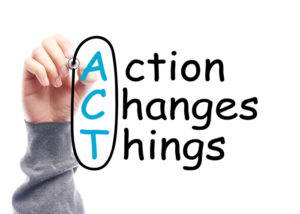 Now is a good time to assess your financial health and knowledge. These days there’s a chill in the air and it’s not just the wintry weather!
Now is a good time to assess your financial health and knowledge. These days there’s a chill in the air and it’s not just the wintry weather!
Across Europe it has been the chill of economic uncertainty as Europe wavers on the brink of a debt crisis. Here at home, the Occupy protesters are a reminder of discontent that has been brewing over corporate bailouts and executives payouts.
With all this turmoil people are probably wondering about their future. They’re asking themselves, do I have a sound financial plan? Is my financial house in order? Do I even know what I’m doing?
We’re happy to tell you, in our experience as money coaches, we have found people usually know more than they think they do. So while it’s no time to throw caution to the winds, relax a little — you probably know more than you think.
Here’s a five-point check list for the basics:
1) I have completed a net worth statement: I have added up the value of everything I own (my assets) and what I owe (liabilities) to come up with my net worth.
2) I manage my cash flow, tracking money that comes in and all my spending.
3) I have a spending and savings plan so I know money is there to pay the bills when they come due and I can make choices about whether it’s more important to save for a designer dress or if I’d rather put that money towards a ski trip.
4) I have built up a good credit history and I pay my credit card off in full every month so I am not paying high interest rates to fund buying that is beyond my means.
5) I have an investment and retirement plan which I review regularly and I seek professional advice because it’s worse to remain in ignorance than to worry about asking questions for fear of looking dumb.
If you have answered yes to most of the questions, you’re on your way.
You have a handle on your finances and are aware of the some of the key issues that can make a difference between financial security and not sleeping at night because you’re worried about paying the bills.
If you didn’t answer yes to all, don’t be too hard on yourself, you’re not alone – but it is time to take control.
Many of the respondents in the Desjardins personal finance index survey who were aged 45 to 64 had no retirement savings plan. And 40 per cent in that age group who were still working had no idea how much they’d need to live on when they retired.
As money coaches, we can help you discover those answers and take responsibility for your own finances. We’re not here to judge but to empower you with the knowledge to take control of your financial future.
Call us and take a step towards securing your financial future.


 Happy New Year!
Happy New Year!

 Now is a good time to assess your financial health and knowledge. These days there’s a chill in the air and it’s not just the wintry weather!
Now is a good time to assess your financial health and knowledge. These days there’s a chill in the air and it’s not just the wintry weather!